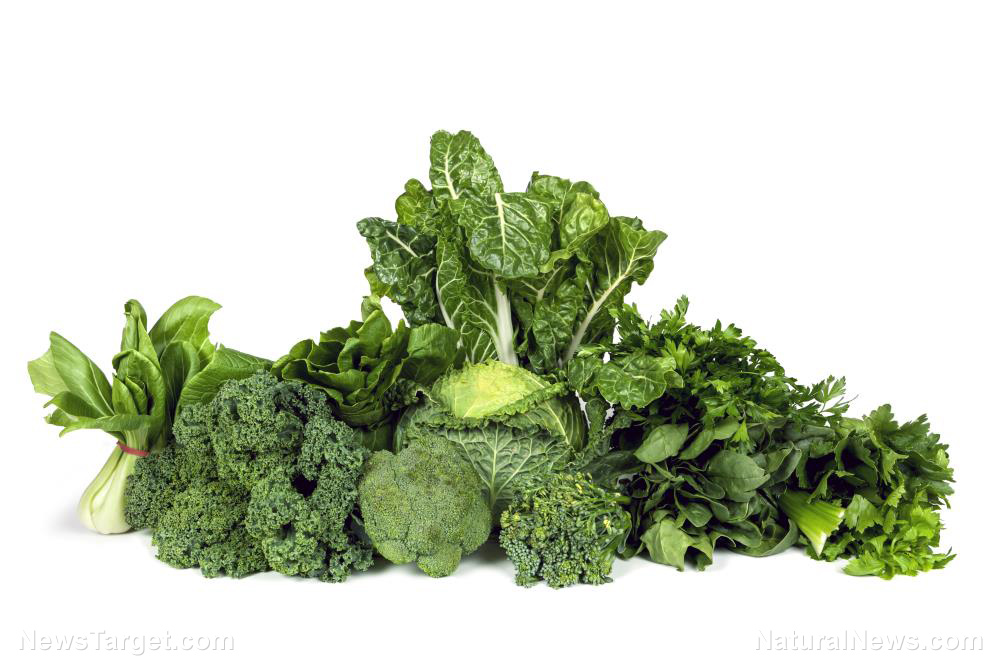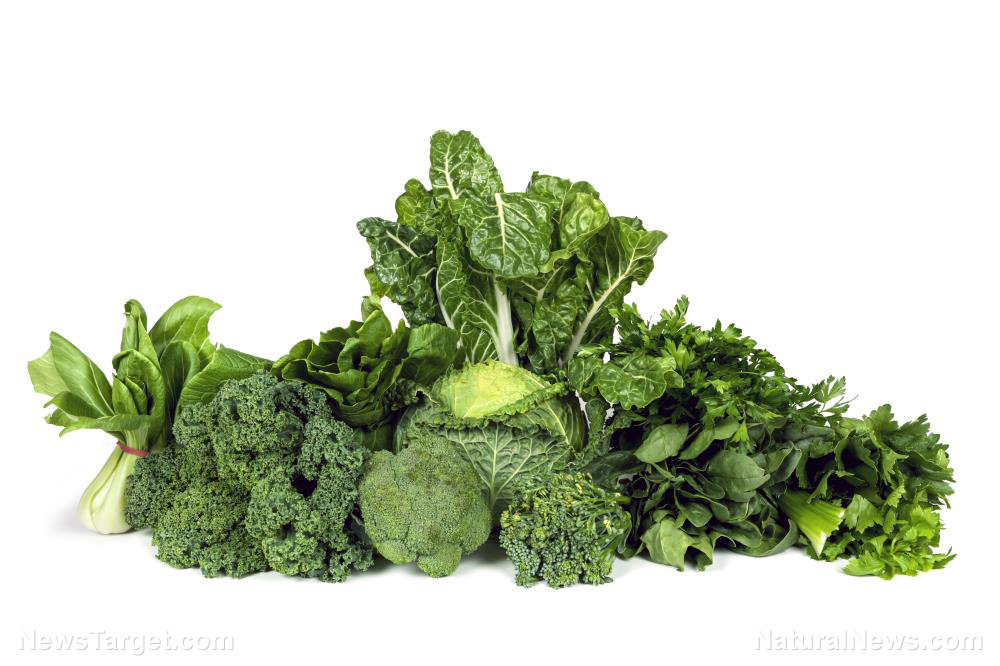Learn about brain health and nootropics to boost brain function
Miracle food: Are you eating enough cruciferous vegetables?


(Natural News) Vegetables are one of the keys to good nutrition and overall well-being; just about everyone knows that they need to eat their veggies if they want to preserve their health. But not all vegetables are created equal. To a degree, every vegetable, or at least every type of vegetable, comes with its own unique set of benefits. Cruciferous vegetables are no different: these kinds of veggies boast a wide variety of nutrients and health benefits all their own.
Cruciferous vegetables belong to the Brassica family and include some well-known favorites like broccoli, Brussels sprouts, cauliflower, cabbage and kale. Some other notable Brassica family members are bok choy, mustard greens, horseradish, collard greens, kohlrabi, rutabagas, turnips, radishes, watercress and arugula.
One thing that makes this family of vegetables special is the presence of the phytochemical sulforaphane. As Green Med Info explains, “Sulforaphane is produced when the enzyme myrosinase converts glucoraphanin, a glucosinolate (natural compound found in some plants), through a chemical reaction induced by damage to the plant, such as cutting or chewing. As such, glucoraphanin is known as the precursor to sulforaphane. ”
Cruciferous vegetables contain a substantial amount of glucoraphanin, which helps to make them the nutrient powerhouses that they are. Budding research has shown that sulforaphane has a number of applications in a variety of diseases and conditions, with its potential benefits first being realized by Johns Hopkins researcher Paul Talalay in 1992.
In the premier study, Talalay and his team examined and confirmed the anti-cancer effects of broccoli and sulforaphane. Since that time, he has continued to research the benefits of the plant compound and even founded The Brassica Chemoprotection Laboratory.
Sulforaphane benefits the brain and body
Some fairly recent research has indicated that sulforaphane can provide protective benefits to the brain. In 2014, research published in the American Journal of Alzheimer’s Disease & Other Dementias found that the phytochemical could help protect against the characteristic amyloid plaques of Alzheimer’s disease. Alzheimer’s disease is a common neurodegenerative disease that primarily affects older populations; no effective treatment has been found for it as of yet.
The research team found that in mice with Alzheimer’s-like brain lesions, sulforaphane helped to mitigate the formation of amyloid plaque. In their abstract, the team stated, “In conclusion, SFN [sulforaphane] ameliorates neurobehavioral deficits and protects the brain from A? [amyloid plaque] deposits and peroxidation in mice with Alzheimer-like lesions, suggesting SFN is likely a potential phytochemical to be used in AD therapeutics.”
Other research has also shown that sulforaphane may be useful in the treatment of a variety of cognitive impairments and other studies have indicated it has neuroprotective benefits.
Beyond the brain, there is quite a bit of evidence to support the other health benefits of this potent phytochemical. For example, several studies have demonstrated sulforaphane’s anti-cancer effects. Green Med Info reports that sulforaphane “possesses the capacity to intervene in multistage carcinogenesis through the modulation and/or regulation of important cellular mechanisms” and “to be selectively toxic to malignant cells.”
High intakes of Brassica vegetables are associated with a reduced risk of prostate cancer and may help prevent certain types of lung cancer and skin cancer, as well.
Because sulforaphane is also associated with substantial anti-inflammatory benefits, it appears that the plant chemical also yields significant heart and cardiovascular benefits, too. A 2012 study reportedly found that sulforaphane reduced oxidative stress and inflammation in the heart and kidneys, and helped to decrease blood pressure. A more recent study from 2015 also found that consuming broccoli sprouts actually reduced the excretion of biomarkers associated with inflammation and vascular reactions.
The benefits sulforaphane provides the body are practically endless: it’s an antioxidant that helps remove toxins from the body, reduces inflammation and protects the brain. The health-promoting effects of this plant nutrient may even extend to diabetes, pain relief, depression and perhaps, even more health conditions.
Sources include:
Click here to view full article